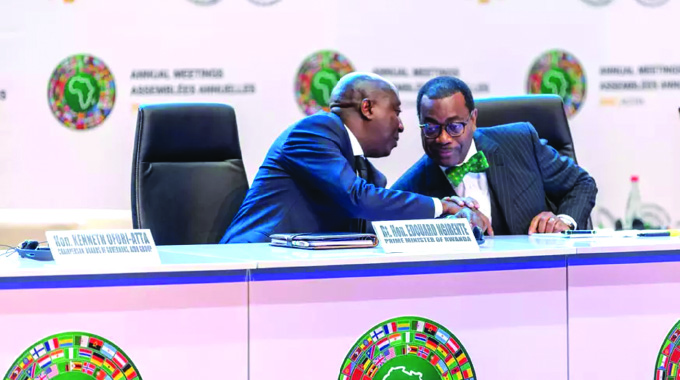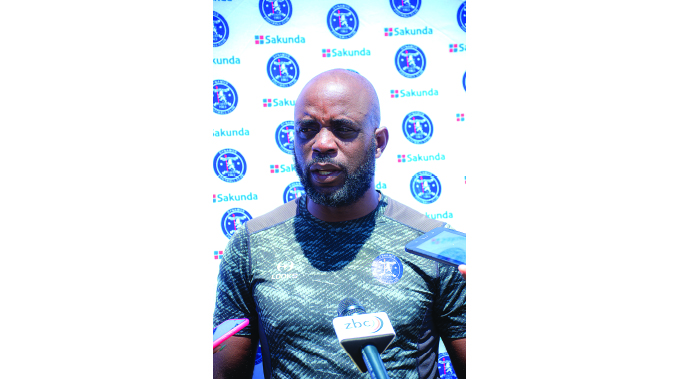AfDB accepts President’s call on Zim’s foreign debt

Tapiwanashe Mangwiro Senior Business Reporter
African Development Bank (AfDB) President Dr Akinwumi Adesina says he has accepted President Mnangagwa’s request for the bank to lead the country’s debt repayment strategy as Zimbabwe seeks to expunge its onerous debt overhang.
The development was communicated by Adesina at the ongoing AfDB annual general meeting (AGM) in Accra, Ghana.
An unsustainable sovereign debt, now at US$19 billion, has been blamed for blocking access by the country to affordable long term financing from both multilateral and bilateral financiers, which has hindered efforts to turn around the economy.
Adesina told journalists that, “I have written to the President of Zimbabwe that I humbly accept what you requested me to champion as the vice president said the arrears clearance and I know that with the understanding and the support of our partners we will get there soon.”
Finance and Economic Development Minister Prof Mthuli Ncube first revealed the bank’s willingness to assist Zimbabwe on its debt when he met the AfDB President in Washington DC, USA last month, where the two were part of the World Bank annual meetings.
“The President of the AfDB has put himself forward as a candidate to help the country come up with good staff monitored programmes which also include the International Monetary Fund (IMF),” Minister Ncube said at the time.
Dr desina said Zimbabwe used to be the breadbasket of the region and “it’s in everybody’s interest to have a revived, renewed and energised Zimbabwe”.
Minister Ncube said Zimbabwe was working on a debt clearance pathway with its creditors, which involve possibly entailed staff monitored programmes monitored the International Monetary Fund in order to find a sponsor who can help Harare repay its external bebts.
Debt sponsorship is when a country finds another country to pay off its debt from the international financial institutions (IFIs) and in turn gets a ‘soft’ loan to use to repay part of the sponsorship debt. This gives the country a more favourable platform to borrow than getting expensive loans from bilateral lenders.
While in Washington DC, the finance minister held re-engagement meetings with various lenders on the sidelines of the meeting, including the 17 members of the Paris Club.
According to Minister Ncube, the country has been making token payments to its creditors who have expressed their gratitude to the gesture, but stressed the intention was to expunge the total debt.
Zimbabwe has begun making token payments all its foreign financiers it woes among them the Paris Club, which has 17 members, the World bank and the African Development Bank (AfDB).
“We are now making token payments to the 17 members of the Paris Club, this means that we are now servicing all our creditors, and payments are being made quarterly for the past 9 months,” Minister Ncube said last month.
“So we are committed as that bank to that. We will walk with our partners. We will walk with the World Bank. We will walk with the IMF, we will walk with all the bilateral partners. My vice president [Yacin Fal] just went there,” Adesina concluded.
Zimbabwe is presently ineligible to get loans from the IFIs due to its external debt, which exempted it from the Covid-19 relief debt, which were extended to its neighbours South Africa and Zambia.
“Zimbabwe has been a member of the IMF in good standing since it repaid arrears outstanding in late 2016. However, Zimbabwe has external arrears to multilateral development institutions (World Bank, AfDB and EIB). As a general rule the IMF is prevented from lending to any member country that has arrears to other international financial institutions,” the IMF said in November 2021.










Comments